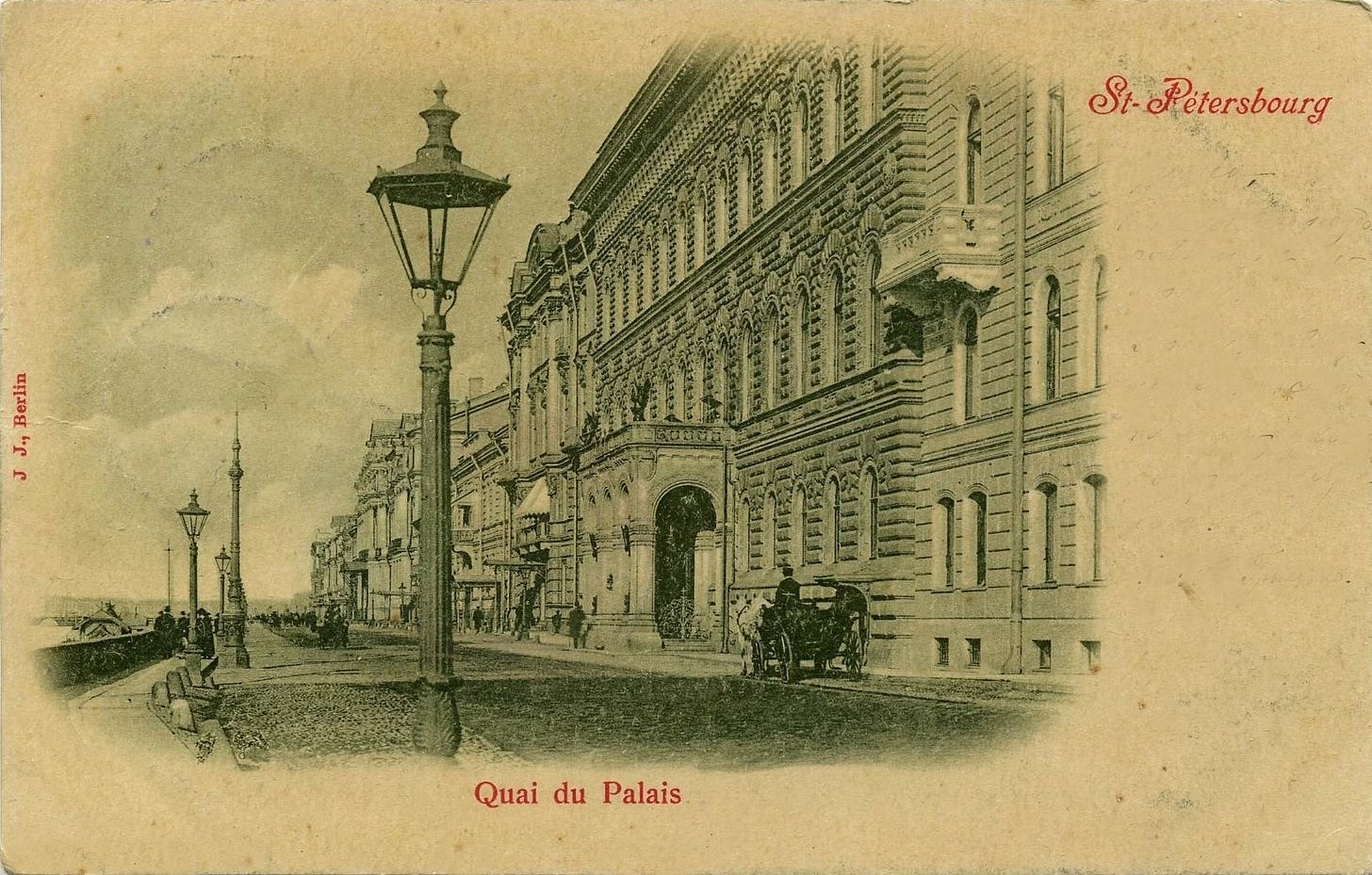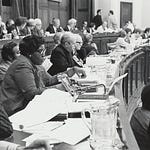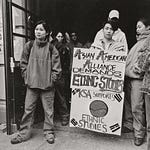
You probably recognize the tune this episode begins with: it’s “The Song of the Volga Boatmen,” sung by Leonid Kharitonov and the Red Army Orchestra at Tchaikovsky Hall in Moscow in 1965. It’s a folk song, originally sung by Russian barge haulers, or burlaks working on the Volga River in the 19th century. These peasants, in teams, literally hauled barges down the river, like beasts of burden, earning barely enough money to keep themselves and their families alive.
Over time the song came to stand in for the strength and the spirit of a Russian people laboring under an absolute monarchy and the capitalist system that propped it up. Each verse’s repetitive “Yo, heave ho” not only evoked the numbing, back-breaking labor that bound Russians to lives of misery and privation under the Tsar, but also for the capacity of the people to endure and fight for their own freedom. The Russian monarchy finally fell in the face of the successful 1917 revolution, giving way to a Communist state that survived until December 8, 1991, when the Soviet Union dissolved.
But well before 1917, there were periodic uprisings of peasants, intellectuals, and workers who hoped to make a better world. In 1648, Muscovites rebelled against the imposition of a salt tax. In 1698, 4000 soldiers overthrew their commanders and marched to Moscow, demanding that the exiled Russian Princess Sophia Alexeyevna be made Tsarina instead of 17-year-old Peter I. In 1771, rioters entered Red Square, broke into the Kremlin, and sacked a monastery. In 1825, three thousand rebellious soldiers demanded a constitution and that the Grand Duke Constantine be put on the throne. Anti-imperial uprisings occurred periodically in Poland throughout the 19th century, as ordinary Poles demanded freedom from the Tsar’s rule. Despite constant repression and policing, socialism, anarchism, and other radical ideologies spread like wildfire through the Russian Empire.
The quest of the Russian people for democracy continues to this day, something that is worth remembering as the world musters support for the defense of Ukraine against Russian President Vladimir Putin’s war machine. We don’t usually do Russian history on this podcast, but when I saw Allison Epstein’s new historical novel, Let the Dead Bury the Dead, just out this month from Penguin/Random House, I knew I wanted to read a story about Russians fighting for freedom. It’s a ripping tale about an officer coming home from the Napoleonic Wars to the man he loves, who just happens to be the tsar’s second son, a diffident, louche fellow who suddenly grows a conscience. And it also stars a brave band of revolutionaries, determined to set their country free, no matter what. And oh, yes—there’s a witch.
This is Allison’s second historical novel, and her first about Russia. They are serious works of historical fiction that you will love, But she’s also funny. A fellow Substacker, Allison writes a newsletter called Dirtbags Through the Ages, which is exactly what it sounds like. Posts have titles like “that don’t empress me much” (about Empress Elizabeth of Russia), “double, double, toil and throuple” (the sexual antics of James I of England), and “a real papal pleaser: Or, the horny and heretical adventures of tenth-century Bad Pope John XII.”
I love historical fiction: as I say in this interview, it’s what got me interested in history as a child, and I still turn to it—for pleasure, and to think through narrative strategies for the nonfiction books I write.
So, I knew I had to get Allison on the show.
Show notes:
Would you like to read a first-hand account of the 1917 Russian Revolution? Try journalist John Reed’s Ten Days That Shook the World, originally published in the United States in 1919.
Allison notes that her novel begins as French Emperor Napoleon’s army is retreating from Moscow through a brutal Russian winter. This event wasmemorialized in Tchaikowsky’s 1812 Overture, but this period in Russian history has also been famously fictionalized in Leo Tolstoy’s War and Peace (1865.)
Allison mentions the 1825 Decembrist uprising: to learn more about this event, read Ludmilla A. Trigos, The Decembrist Myth in Russian Culture (Palgrave/MacMillan, 2009.)
Claire mentions the parallel between the princes depicted in Allison’s novel and “William and Harry:” she is, of course, referring to King Charles III’s two sons. You can read more about those fellows, and their conflict over the future of the monarchy, in Robert Lacey, Battle of Brothers: William and Harry – The Inside Story of a Family in Tumult (Harper, 2020.)
Claire mentions Jean Plaidy, one of the pen names used by historical novelist Eleanor Alice Hibbert Burford (1906-1993.) You can pick one here.
Claire mentions Grigory Rasputin, the spiritual advisor to the Alexandra, the last Empress of Russia. You can read about the role he played in the conspiracy theories that helped to mobilize Russians to overthrow the monarchy in Robert K. Massie, Nicholas and Alexandra (Random House, 1967.)
Claire references Bridgerton (2020), a Netflix series based on Julia Quinn’s historical novels about England and its nobility during the reign of George III. Directed by the great Shonda Rhimes, fans are all holding our breath waiting for season 3 to drop.
You can download this podcast here or subscribe for free on Apple iTunes, Spotify, Google Podcasts, or Soundcloud. And if you liked this episode, please join us at Political Junkie!
If you enjoyed this episode, why not try:
Episode 31, Haunted By History: A conversation with historian Tiya Miles about her novel, "The Cherokee Rose: A Novel of Gardens and Ghosts."
Episode 11, You Are Dead To Me: A conversation with New York Times editor Clay Risen about obituaries as popular history
Episode 4, Bringing the War Home: A conversation with writer Zayd Ayres Dohrn about the Weather Underground, a generation raised in its shadow, and the search for answers in his new podcast, "Mother Country Radicals."
Want to learn about the history of political media from I.F. Stone to Donald Trump? Well, here’s the deal. Through the end of October, taking out, renewing, or converting to an annual paid subscription ($50) will get you a free copy of my recent book, Political Junkies: From Talk Radio to Twitter, How Alternative Media Hooked Us on Politics and Broke Our Democracy (Basic Books, 2023.) That’s right, free. When I get the sign-up notification, I’ll write to thank you and get your mailing address, and you should have your book in a couple of days.













Share this post